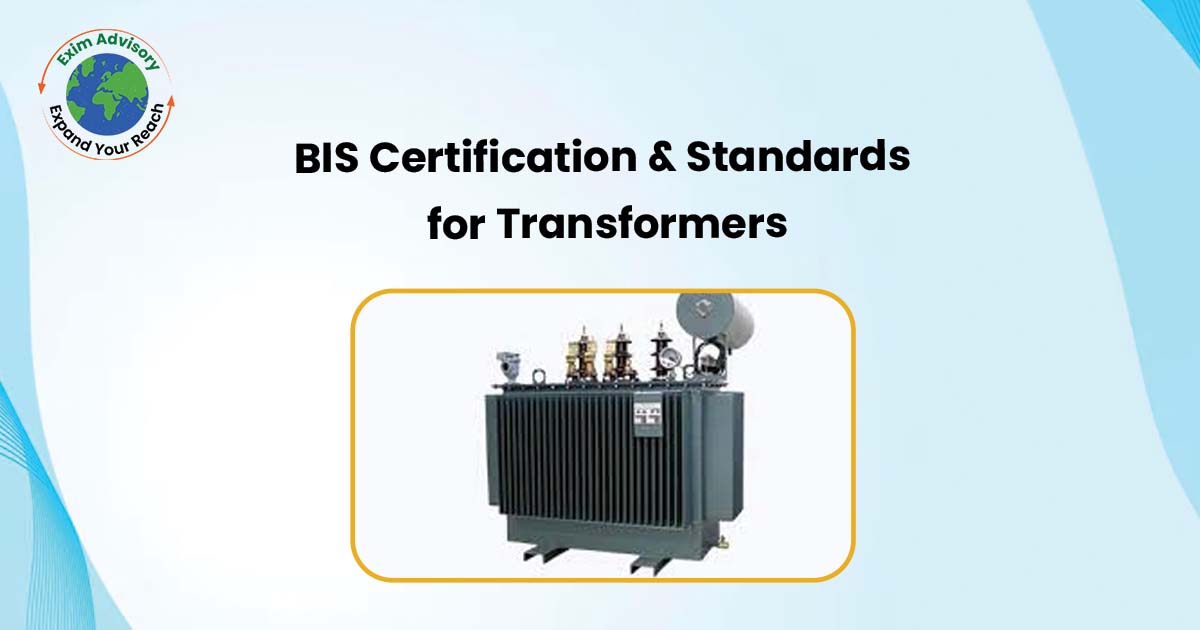Transformers are a vital part of modern electrical systems, enabling efficient transmission and distribution of electricity. Ensuring the safety, reliability, and performance of transformers is critical, which is why the Bureau of Indian Standards (BIS) has established strict guidelines and certification requirements. In this guide, we delve into the details of BIS certification and standards for transformers, covering every essential aspect.
What is BIS Certification for Transformers?
BIS certification is a mandatory quality assurance measure for transformers sold or used in India. It ensures that transformers meet specific safety, performance, and environmental standards as defined by BIS. The certification helps prevent substandard products from entering the market, safeguarding end-users and infrastructure.
Key BIS Standards for Transformers
Transformers must adhere to various Indian Standards (IS) based on their type, application, and specifications. Here are the most critical BIS standards for transformers:
-
IS 1180 (Part 1): Distribution Transformers
-
Covers outdoor-type oil-immersed distribution transformers up to 2,500 kVA.
-
Specifies requirements for energy efficiency, insulation, temperature rise, and short-circuit withstand capacity.
-
-
IS 2026: Power Transformers
-
A series of standards covering general requirements, temperature rise, dielectric properties, and short-circuit performance for power transformers.
-
-
IS 3024: Grain-Oriented Electrical Steel Sheets
-
Specifies material requirements for core laminations to reduce energy losses.
-
-
IS 11171: Dry-Type Transformers
-
Applicable to air-cooled dry-type transformers used indoors or in sensitive environments.
-
-
IS 12977: Auto Transformers
-
Covers requirements for auto transformers used in power transmission and distribution.
-
-
IS 14494: Amorphous Core Transformers
-
Standards for transformers using amorphous core material for enhanced energy efficiency.
-
Types of Transformers Requiring BIS Certification
-
Distribution Transformers
-
Used to step down voltage for residential or industrial applications.
-
Must comply with IS 1180 (Part 1).
-
-
Power Transformers
-
Used in transmission networks for voltage regulation.
-
Governed by IS 2026 standards.
-
-
Dry-Type Transformers
-
Ideal for indoor use, where fire safety is critical.
-
Covered under IS 11171.
-
-
Auto Transformers
-
Often used in motor starting and voltage regulation applications.
-
Must meet IS 12977 requirements.
-
-
Special Purpose Transformers
-
Includes isolation transformers, furnace transformers, and rectifier transformers.
-
Standards depend on their specific applications.
-
Steps to Obtain BIS Certification for Transformers
-
Determine Applicable Standards
-
Identify the BIS standards relevant to your transformer type.
-
-
Prepare Documentation
-
Submit detailed technical specifications, drawings, and test reports.
-
-
Apply for Certification
-
Register on the BIS portal and submit the application along with necessary fees.
-
-
Product Testing
-
The transformer must undergo rigorous testing at a BIS-recognized laboratory.
-
-
Factory Inspection
-
BIS officials conduct on-site inspections to assess manufacturing processes and quality control systems.
-
-
Grant of License
-
If the product meets all requirements, BIS issues a certification license with a unique ISI mark.
-
Testing Requirements for BIS Certification
BIS-certified transformers must pass a series of stringent tests to ensure quality and safety. Key tests include:
-
Routine Tests
-
Conducted on every transformer to verify workmanship and performance.
-
Examples: Winding resistance, voltage ratio, insulation resistance.
-
-
Type Tests
-
Performed on prototype transformers to validate compliance with standards.
-
Examples: Temperature rise test, impulse voltage withstand test.
-
-
Special Tests
-
Conducted based on customer or regulatory requirements.
-
Examples: Noise level measurement, harmonics test.
-
Benefits of BIS Certification for Transformers
-
Assurance of Quality
-
BIS certification guarantees compliance with stringent quality and safety standards.
-
-
Market Access
-
Mandatory for selling transformers in India, ensuring hassle-free market entry.
-
-
Energy Efficiency
-
Certified transformers minimize energy losses, reducing operational costs and environmental impact.
-
-
Consumer Trust
-
The ISI mark instills confidence in customers regarding product reliability.
-
Common Challenges in BIS Certification
-
Compliance Complexity
-
Navigating multiple standards and test requirements can be daunting.
-
-
Cost of Testing
-
Laboratory testing and factory inspections can be expensive.
-
-
Time-Consuming Process
-
Completing documentation, testing, and inspections may take several months.
-
-
Technological Upgrades
-
Manufacturers may need to upgrade facilities to meet BIS standards.
-
Recent Updates in BIS Standards for Transformers
-
Energy Efficiency Enhancements
-
Mandatory compliance with updated efficiency levels as per star ratings.
-
-
Focus on Sustainability
-
Inclusion of eco-friendly materials like amorphous cores in standards.
-
-
Digital Certification Processes
-
Simplified online application and tracking mechanisms.
-
Conclusion
BIS certification for transformers is an essential step in ensuring the safety, reliability, and efficiency of electrical systems in India. By complying with BIS standards, manufacturers can deliver superior products, enhance consumer trust, and contribute to sustainable energy practices. For manufacturers and suppliers, understanding and adhering to these standards is crucial for long-term success in the market.
If you’re looking for expert guidance on obtaining BIS certification for transformers, contact experienced professionals to streamline the process and ensure compliance.
